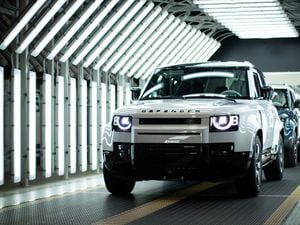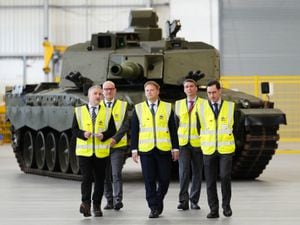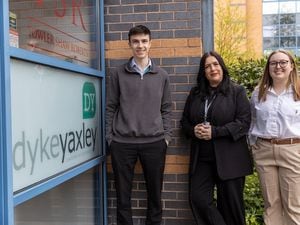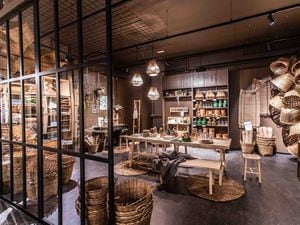Jaguar Land Rover returns to profit as computer chip supply shortage eases
Luxury car maker Jaguar Land Rover returned to profit in its latest financial quarter as supply shortages of computer chips eased.

Pre-tax profit was £265 million from a loss of £9m a year earlier.
JLR, which has its engine manufacturing centre at the i54 to the north of Wolverhampton, enjoyed a 28 per cent rise in revenue for the three months to the end of December to £6 billion on the year and up 15 per cent on the previous quarter.
Wholesale volumes were 79,591 – the highest level since the first quarter of 2021-2022 when the semiconductor shortages began.
The production ramp up of New Range Rover and New Range Rover Sport continued with 27,000 cars wholesaled in the quarter, up from 14,000 in the second quarter.
85,000 cars were delivered to retail clients in the third quarter while taking 95,000 new orders with the total number of orders increasing to a new record of 215,000.
The three most profitable models – the New Range Rover, New Range Rover Sport and Defender – account for over 74 per cent of the order book
JLR's Refocus transformation programme has delivered £850m savings in the financial year to date and is on track to deliver £1bn in the full year.
Reimagined pure-electric Jaguar models, launching in 2025, will be built in Solihull alongside BEV Range Rovers, heralding an exciting new era of electric car production in the UK.
Adrian Mardell, JLR’s interim chief executive, said: “Jaguar Land Rover has returned to profit as chip shortages eased in the quarter and production and wholesales increased. These improved results are testament to the hard work and dedication of our people across the business who have delivered a further increase in production of our New Range Rover and Range Rover Sport models.
“We remain committed to our Reimagine strategy which will transform JLR into an all-electric modern luxury business, whilst delivering our SBTi climate goals and striving to exceed our clients’ expectations.”
Wholesales in China during the quarter were impacted by lockdowns leading to dealer closures followed by high rates of staff absence as Covid-19 restrictions were relaxed. The situation is expected to recover in the fourth quarter with dealers open and staff absence closer to normal levels in January.





